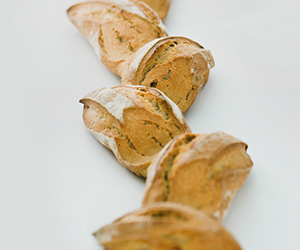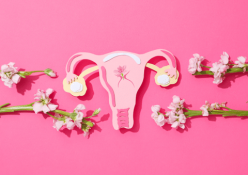And the award for the most hated food group goes to … carbohydrates! So why is everyone so afraid of them? By Rebekah Kendal
 There was a time – not so long ago – when fat was frowned upon. Skip the butter, skim the milk and count those kilojoules. But the tides have turned, and now it’s carbohydrates that are the enemy. The threat of diabetes and obesity lurks in every ribbon of pasta or slice of bread, and even your mother is urging you to eat like a caveman.
There was a time – not so long ago – when fat was frowned upon. Skip the butter, skim the milk and count those kilojoules. But the tides have turned, and now it’s carbohydrates that are the enemy. The threat of diabetes and obesity lurks in every ribbon of pasta or slice of bread, and even your mother is urging you to eat like a caveman.
Of course, this is quite the over-simplification. But that’s the problem with dietary fads: they are strong on slogans and weak on the details. So before you toss that sarmie, let’s look at carbs for what they are – a source of energy.
Fill her up
Carbohydrates are converted into glucose by our bodies. This glucose is used as fuel for energy. If your body doesn’t need the glucose, it stores it in your muscles or liver.
While we tend to think of pasta, bread and sugar when we think of carbs, this is not the full picture. ‘It’s often forgotten that seeds, fruit, vegetables and wholegrains are carbohydrates too,’ says Kimberly Kemp, a nutritionist and co-founder of Healthy Hunnies.
‘These healthy carbs not only provide us with energy for the day, but deliver essential nutrients such as vitamins, minerals, phytochemicals, enzymes and antioxidants, as well as a number of other compounds that are vital for cellular functions. This is why we eat in the first place – to nourish our bodies at a cellular level with high-nutrient foods.’
The goodies
According to Kimberly, good carbs, which are classified as ‘complex’ or ‘slow-release’ carbohydrates, are high in fibre. The upside? They slow down digestion, provide you with a steady release of energy, keep your blood sugar levels stable and help you to feel full for longer.
Good carbs Non-starchy veggies such as spinach, kale, courgettes, broccoli, cauliflower, asparagus, cucumber and onions
The baddies
Simple or quick-release carbs are digested and absorbed faster than slow-release carbs. Quick absorption results in a spike in blood sugar levels, which in turn results in an increased secretion of insulin.
‘Insulin is the vehicle that delivers glucose to the body’s cells. If there is more glucose than you need, your body reacts by storing it as fat. This results in a drop in blood sugar levels, leaving you feeling tired and only craving more sugar to raise your blood sugar levels again.’
However, there is more to the poor reputation of quick-release carbs than the havoc they wreak on your blood sugar levels. These carbohydrates have often been highly processed (stripped of their nutrients, bleached or heated), are high in added sugar or sweeteners, and contain gluten, which has a negative effect on intestinal health, says Kimberly.
Bad carbs White rice, white bread, potatoes, baked goods, fruit juice and sweets
The right choice
‘To distinguish between good and bad carbohydrates, look at the ingredients list. Bad carbohydrates usually have a long ingredients list, whereas good carbohydrates will generally have a short list,’ Kimberly says. If it includes items you won’t find in your kitchen, avoid the food. If the list contains things you can grow in your garden, on the other hand, it’s a safe bet.
A bad rap
So what has all the carb fuss been about, then? The backlash against carbohydrates is rather confused, and is actually a backlash against quick-release carbohydrates and the fat-storing reaction that occurs as a result of the overconsumption of these carbs, Kimberly says.
Proponents of the anti-carb movement argue that the body’s energy requirements can be met through the consumption of protein and fat rather than carbohydrates.
Curb your enthusiasm
Kimberly points out that while there are advantages to cutting bad carbohydrates from your diet – including improved digestion and weight loss – there are also negative short- and long-term consequences to eliminating carbohydrates, par-
ticularly complex carbohydrates.
‘Carbohydrates are an essential part of the body’s energy supply, and while some adapt well to using fats as an energy source, this can’t be used as a standard solution for everyone. Limiting your carb intake can leave you feeling drained and result in poor concentration.’
What lies beneath
Far more problematic, however, are the long-term effects of limiting the intake of good carbs. ‘If your diet only comprises protein and fat (acid forming) and you don’t eat enough of the good carbohydrates, which are highly alkalinising, your body will keep trying to rebalance the acidity levels by drawing from your mineral stores,’ says Kimberly.
‘This can result in certain mineral deficiencies, which could lead to more serious, long-term illnesses.’







